 The Columbia City Yoga on-line Moving into Meditation class met this morning. We explored ways of developing a more sustainable relationship with energy. We practiced deep rest with calm, patience and gentleness. Our inquiry was about resting as awareness: letting go of doing by allowing being.
The Columbia City Yoga on-line Moving into Meditation class met this morning. We explored ways of developing a more sustainable relationship with energy. We practiced deep rest with calm, patience and gentleness. Our inquiry was about resting as awareness: letting go of doing by allowing being.
We drew inspiration and guidance from Oren Jay Sofer’s new book: Your Heart Was Made for This: Contemplative Practices for Meeting a World in Crisis with Courage, Integrity, and Love. We reflected on how energy animates our lives. How do we develop a more sustainable relationship with our energy? Can we balance our striving with mindful rest and self care?
We heard from Tricycle Magazine’s recent interview with Oren: Nurturing the Energy for Change. Oren discusses how reclaiming our right to rest is a radical act in a culture that is centered around continuous growth and productivity.
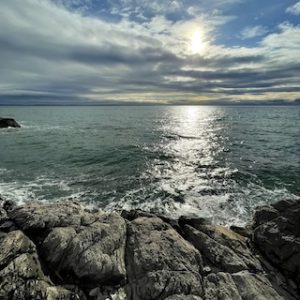 We also heard from poet David Whyte’s essay, Rest, from his collection: Consolations: The Solace, Nourishment and Underlying Meaning of Everyday Words. David writes lyrically about the “conversation between what we love to do and how we love to be.”
We also heard from poet David Whyte’s essay, Rest, from his collection: Consolations: The Solace, Nourishment and Underlying Meaning of Everyday Words. David writes lyrically about the “conversation between what we love to do and how we love to be.”
We were inspired by Wendell Berry’s beautiful poem, The Peace of Wild Things.
Our guided meditation was informed by the teachings and work of Kelly Boys. You can find Kelly’s guided meditations on her youtube channel.
Last week we worked with aspiration. A heartfelt aspiration can help us to appreciate the time that we have here together. I love the image of cultivating our aspirations like a forest grows in the speed of calm, patience and gentleness. Growing with the speed of calm, patience and gentleness is also a skillful way to work with our energy. Oren Jay Sofer asks his readers and students to look deeply at our experience of energy. For most of my life, I experienced the conditioning that Oren describes as “living our personal lives with this sense of pressure to strive and to push past our limits.”
In a recent interview he said that:
. . . the conversation about energy is deeply connected to the conversation about rest. In order to have sustainable energy, we need to learn how to rest—and how to reclaim our right to rest. Once we start to examine this, we begin to see that self-care and rest are actually radical acts. . . . [It’s] important . . . to examine our need for rest and how to honor it.
 My usual tendency is to contemplate energy as an inner resource I utilize like fuel. It takes me where I want to go or it’s something I might run out of halfway through the day. This week I had wonderful experiences of resting in movement. Meandering along Fisherman’s Bay on Lopez Island I got to follow a pair of sea otters cavorting along the shoreline. Wow: what a gift. Then hiking up a familiar trail I became aware of breathing in the out-breath of Cedar, Doug Fir, Maple, Alder, Cottonwood. Sword Fern, Salal, Oregon Grape, Moss, Fungi, Lichen. I returned my out-breath to each one of them. Breathing in relationship I hiked at the speed of calm, patience and gentleness.
My usual tendency is to contemplate energy as an inner resource I utilize like fuel. It takes me where I want to go or it’s something I might run out of halfway through the day. This week I had wonderful experiences of resting in movement. Meandering along Fisherman’s Bay on Lopez Island I got to follow a pair of sea otters cavorting along the shoreline. Wow: what a gift. Then hiking up a familiar trail I became aware of breathing in the out-breath of Cedar, Doug Fir, Maple, Alder, Cottonwood. Sword Fern, Salal, Oregon Grape, Moss, Fungi, Lichen. I returned my out-breath to each one of them. Breathing in relationship I hiked at the speed of calm, patience and gentleness.
The poet David Whyte writes:
Rest is the conversation between what we love to do and how we love to be. Rest is the essence of giving and receiving; an act of remembering, imaginatively, … psychologically, physiologically and physically. . . . To rest is to fall back to . . . an inner state of natural exchange. The . . . natural exchange is the breath, the autonomic giving and receiving that forms the basis and the measure of life itself. We are rested when we are a living exchange between what lies inside and what lies outside.
. . . . We are rested when we let things alone and let ourselves alone, to do what we do best, breathe as the body intended us to breathe, to walk as we were meant to walk, to live with the rhythm of a house and a home . . . When we give and take in an easy . . . way we are closest to the authentic self, and closest to that self when we are most rested. To rest is not self indulgent, to rest is to prepare to give the best of ourselves, and to perhaps, most importantly, arrive at a place where we are able to understand what we have already been given.
 I think resting is how we might go from doing to being – when we can let things, let ourselves alone. Breathing expresses body’s rhythm and inter-relationship with the world. Walking becomes a play of balance, receiving and responding, feeling and curiosity. We are invited to let go, to be at ease and still, to know ourselves as restful awareness. Restful awareness can hold the life sustaining qualities of compassion, equanimity, wholeness. Restful awareness can hold what Wendell Berry calls The Peace of Wild Things:
I think resting is how we might go from doing to being – when we can let things, let ourselves alone. Breathing expresses body’s rhythm and inter-relationship with the world. Walking becomes a play of balance, receiving and responding, feeling and curiosity. We are invited to let go, to be at ease and still, to know ourselves as restful awareness. Restful awareness can hold the life sustaining qualities of compassion, equanimity, wholeness. Restful awareness can hold what Wendell Berry calls The Peace of Wild Things:
Listen
When despair for the world grows in me
and I wake in the night at the least sound
in fear of what my life and my children’s lives may be,
I go and lie down where the wood drake
rests in his beauty on the water, and the great heron feeds.
I come into the peace of wild things
who do not tax their lives with forethought
of grief. I come into the presence of still water.
And I feel above me the day-blind stars
waiting with their light. For a time
I rest in the grace of the world, and am free.
Let’s rest in the grace of the world taking in the beauty and wisdom of this poem.
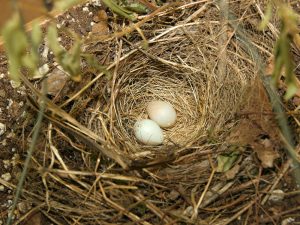 I invite you to adjust your posture as you need to be at ease, relaxed, awake. You might lie down or recline in an easy chair. Give yourself some moments to let the body settle. Can you let there be a gradual letting go of doing? Sensing the experience of being just as you are without trying. See if you can give yourself this time, this space. Can you give yourself over to the greater space of resting as awareness? What does resting as awareness mean for you? Take some moments to inquire what it would be like to simply rest as awareness.
I invite you to adjust your posture as you need to be at ease, relaxed, awake. You might lie down or recline in an easy chair. Give yourself some moments to let the body settle. Can you let there be a gradual letting go of doing? Sensing the experience of being just as you are without trying. See if you can give yourself this time, this space. Can you give yourself over to the greater space of resting as awareness? What does resting as awareness mean for you? Take some moments to inquire what it would be like to simply rest as awareness.
This is about deeply welcoming all that is present without resisting or getting over involved with what surfaces. Rest into this quality of awareness itself so that there may a sense of being awareness. Some deep rest can come into our bodies, our minds.
You might follow the experience of breathing or simply allow space to be just as it is without directing attention. What’s it like to take the time, to bring patience and presence to the practice of resting as awareness?
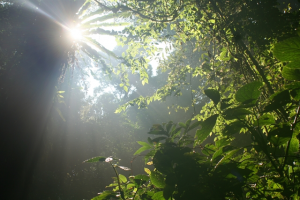 As you enter this welcoming experience of all that’s here, in resting deeply, you may notice changes surfacing in your mind, your body. This may be disorienting or other states may arise in the mind. You can acknowledge what is present and come back to this practice of resting as awareness. Whatever that means in your own inquiry.
As you enter this welcoming experience of all that’s here, in resting deeply, you may notice changes surfacing in your mind, your body. This may be disorienting or other states may arise in the mind. You can acknowledge what is present and come back to this practice of resting as awareness. Whatever that means in your own inquiry.
There may a quality of deep equanimity and rest as awareness itself notices what happens in the mind. A thought arises: What’s next? Looking to seek what’s next is a natural function of the mind. If that’s present you might notice it with kindness, an inner generosity toward whatever arises in your experience. Then come back to resting as awareness itself.
Perhaps you notice a clear mind and a rested body. If so, can you bring the quality of patience to the practice when you notice the impulse toward to the next thing? Can you allow attention to come back to this deep rest practice?
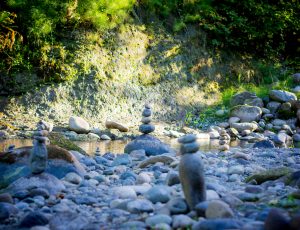 When you begin to attune to the simplicity of resting as awareness notice the impact on thoughts. Notice how you’re viewing or holding memories. There may be a sense of compassion in the heart-mind. Can you let a sense of your heart breaking open to the mess and beautify of life? Can you experience how it’s all held in this quality of awareness?
When you begin to attune to the simplicity of resting as awareness notice the impact on thoughts. Notice how you’re viewing or holding memories. There may be a sense of compassion in the heart-mind. Can you let a sense of your heart breaking open to the mess and beautify of life? Can you experience how it’s all held in this quality of awareness?
As you allow yourself to explore meditation in this way you might realize there is no need for doing or a doer. There is an awareness of the body and mind resting as awareness, consciously, knowingly. See how this affects any aspect of your experience.
I come into the presence of still water. And I feel above me the day-blind stars waiting with their light. For a time I rest in the grace of the world, and am free.
Come into the presence of still water as you rest as awareness. Awareness like the day-blind stars waiting with their light. Rest in the grace of the world. Be free.
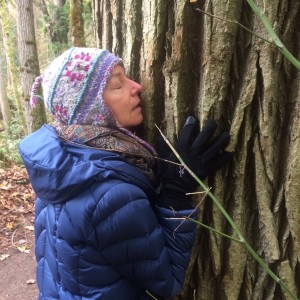 As we bring this practice to a close we can attune to compassion. We can open our heart minds to all beings and wish for their well-being. May all beings be safe. May all beings be well. May all beings know peace. May all beings rest in the grace of the world. May all beings be free.
As we bring this practice to a close we can attune to compassion. We can open our heart minds to all beings and wish for their well-being. May all beings be safe. May all beings be well. May all beings know peace. May all beings rest in the grace of the world. May all beings be free.

